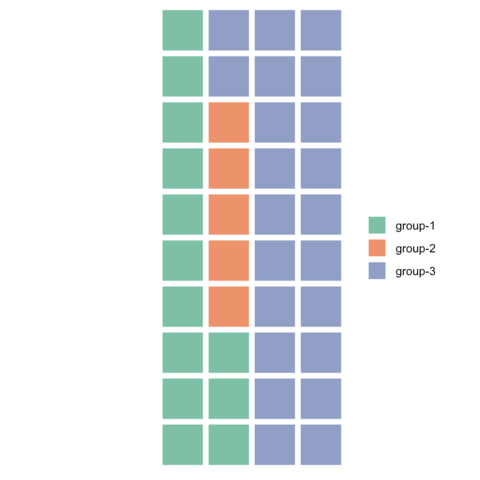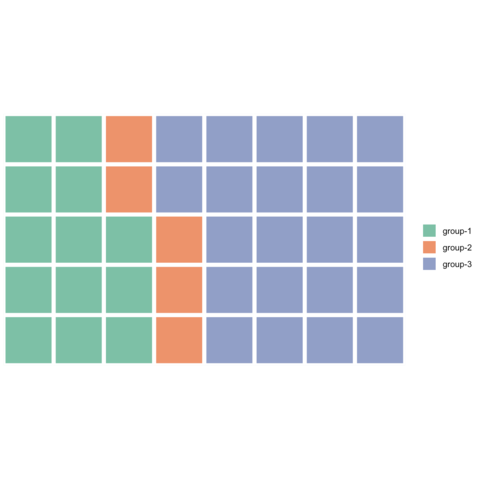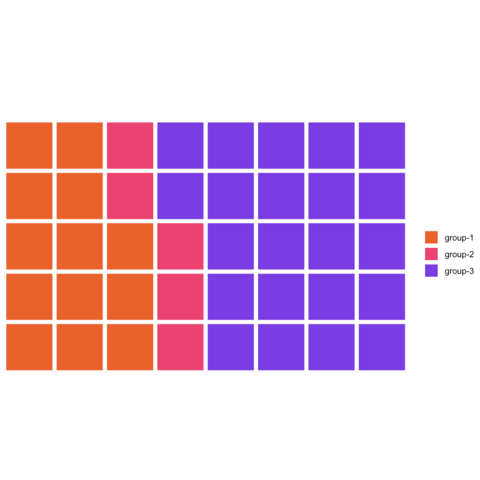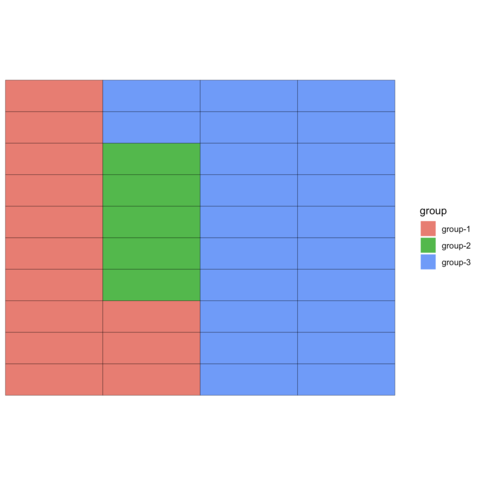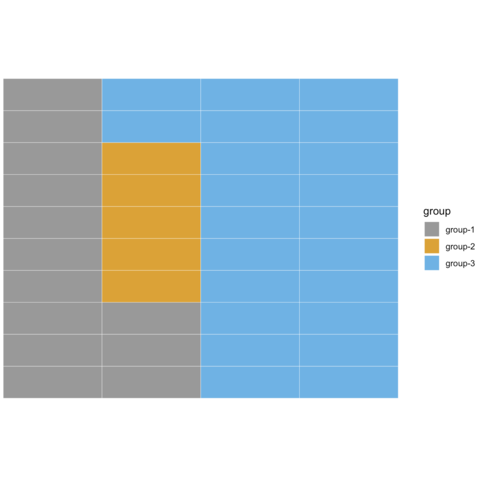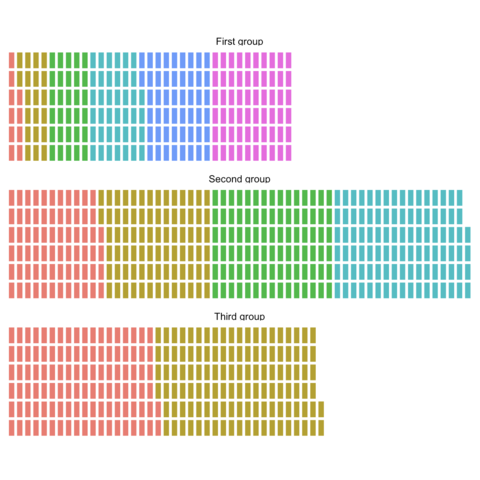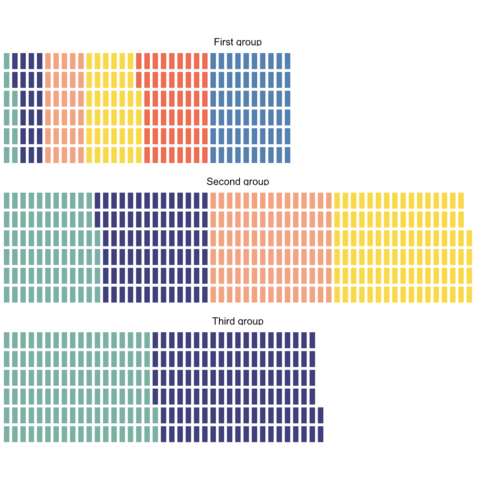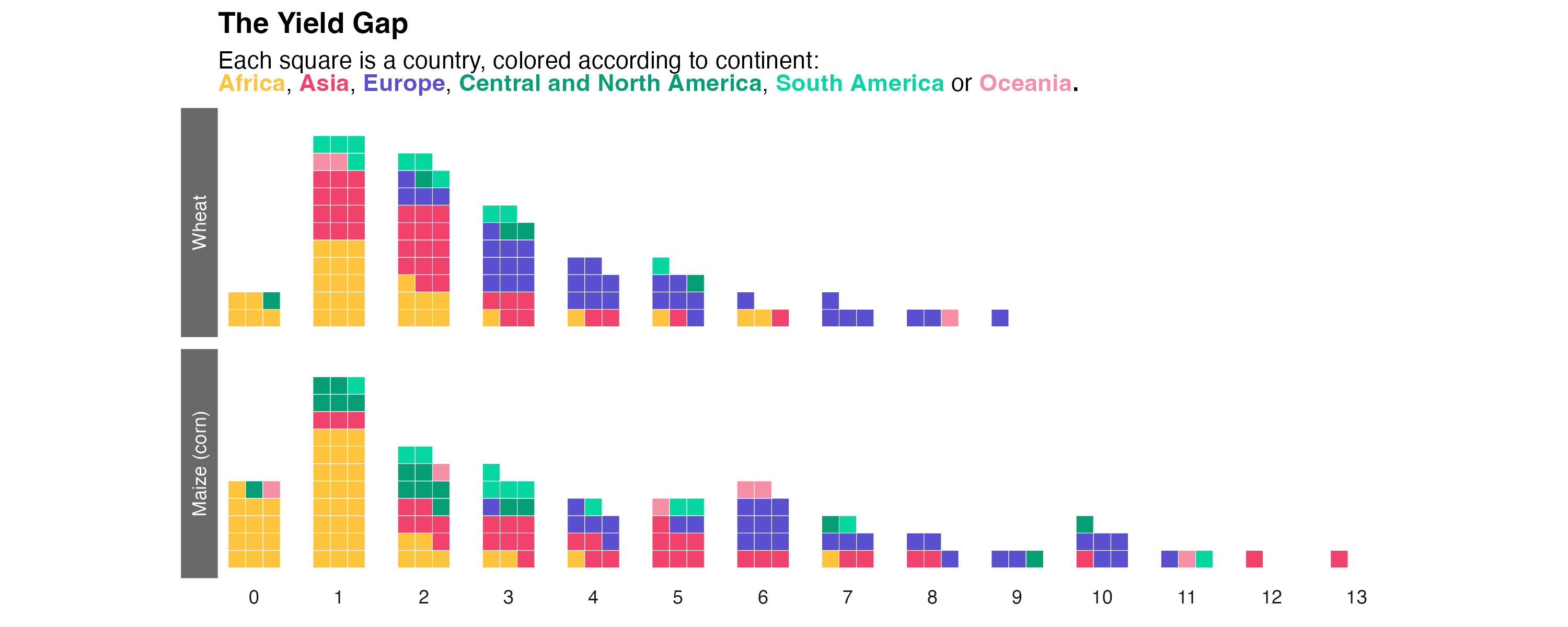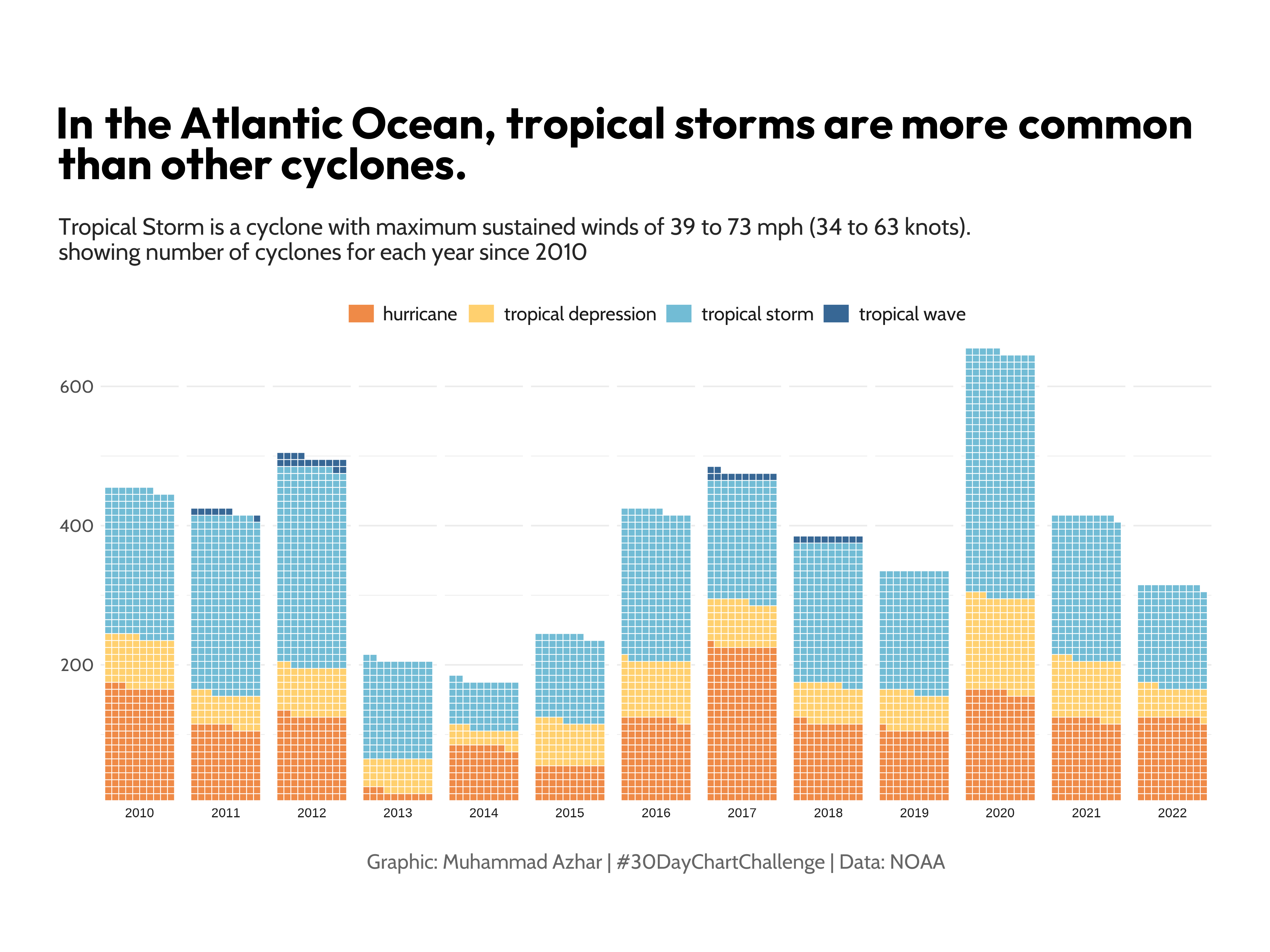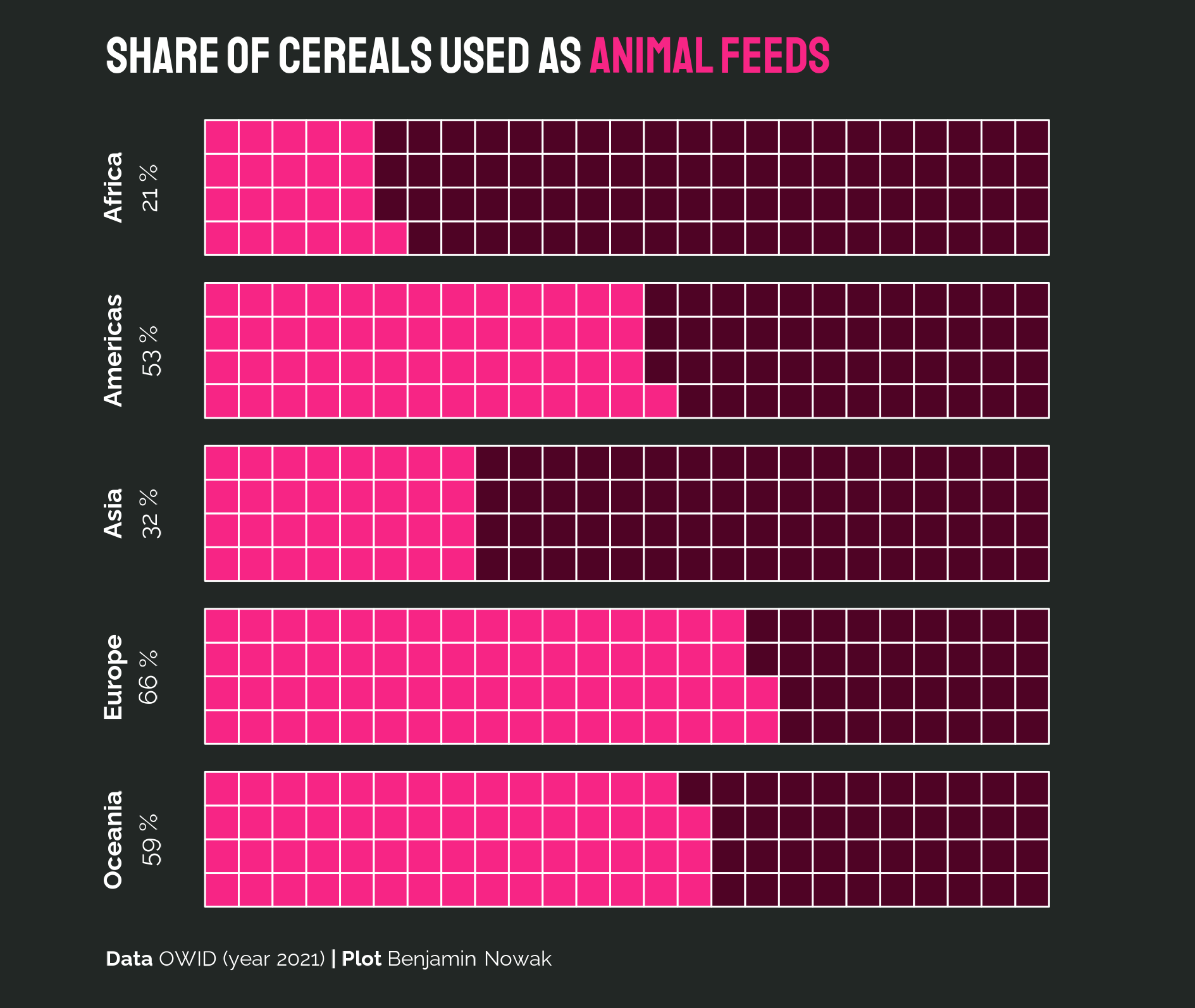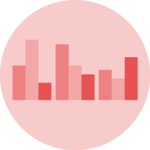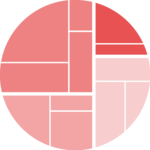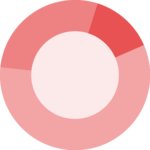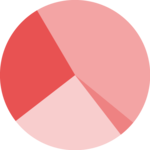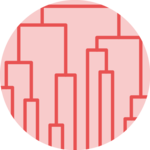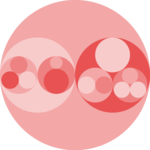waffle package
The waffle package and its waffle() function
is probably the easiest way to build waffle charts in R. The
examples below will teach you how to build a simple waffle chart in
just a few lines of code.
Still with the waffle package, we can this time use
ggplot2 to build waffle charts.
This allows to benefit from the
ggplot2
customization capabilities.
The examples below are the most popular waffle charts of the R graph gallery. They are a good starting point to learn how to create real life waffle charts.
